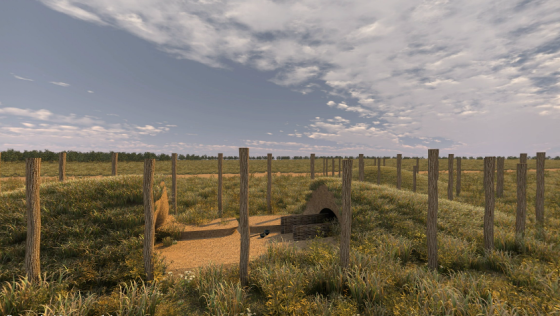Video: Biggest Beaker people burial ground in Europe found in Overijssel
 The biggest Beaker people burial site in Europe has been uncovered close to the town of Dalfsen in Overijssel province.
The biggest Beaker people burial site in Europe has been uncovered close to the town of Dalfsen in Overijssel province.
The site, described as ‘sensational’ by archaeologists, includes 120 graves dating back 5,000 years as well as pottery and the remains of a dwelling. ‘I did not dare to dream of a find on this scale,’ Groningen University archaeology professor Daan Raemaekers told the Volkskrant.
The Beaker people, so named because of the culture’s distinctive pottery drinking vessels, were found throughout western Europe and are responsible for building the dozens of hunebedden – or dolmans – in the east of the Netherlands.
Until now only a few graves have been found in the Netherlands and this massive find will enable archaeologists to understand a lot more about the society and its hierarchy, Raemaekers said.
Some of the graves include stone axe heads and necklaces. One was closed off by a 60 kilo piece of iron ore, which Raemaekers said may have been used to mark the grave of a special person.
Only a few bone fragments have been found in the graves, but it may be possible to extract dna from the few teeth, the Volkskrant says.
Thank you for donating to DutchNews.nl.
We could not provide the Dutch News service, and keep it free of charge, without the generous support of our readers. Your donations allow us to report on issues you tell us matter, and provide you with a summary of the most important Dutch news each day.
Make a donation